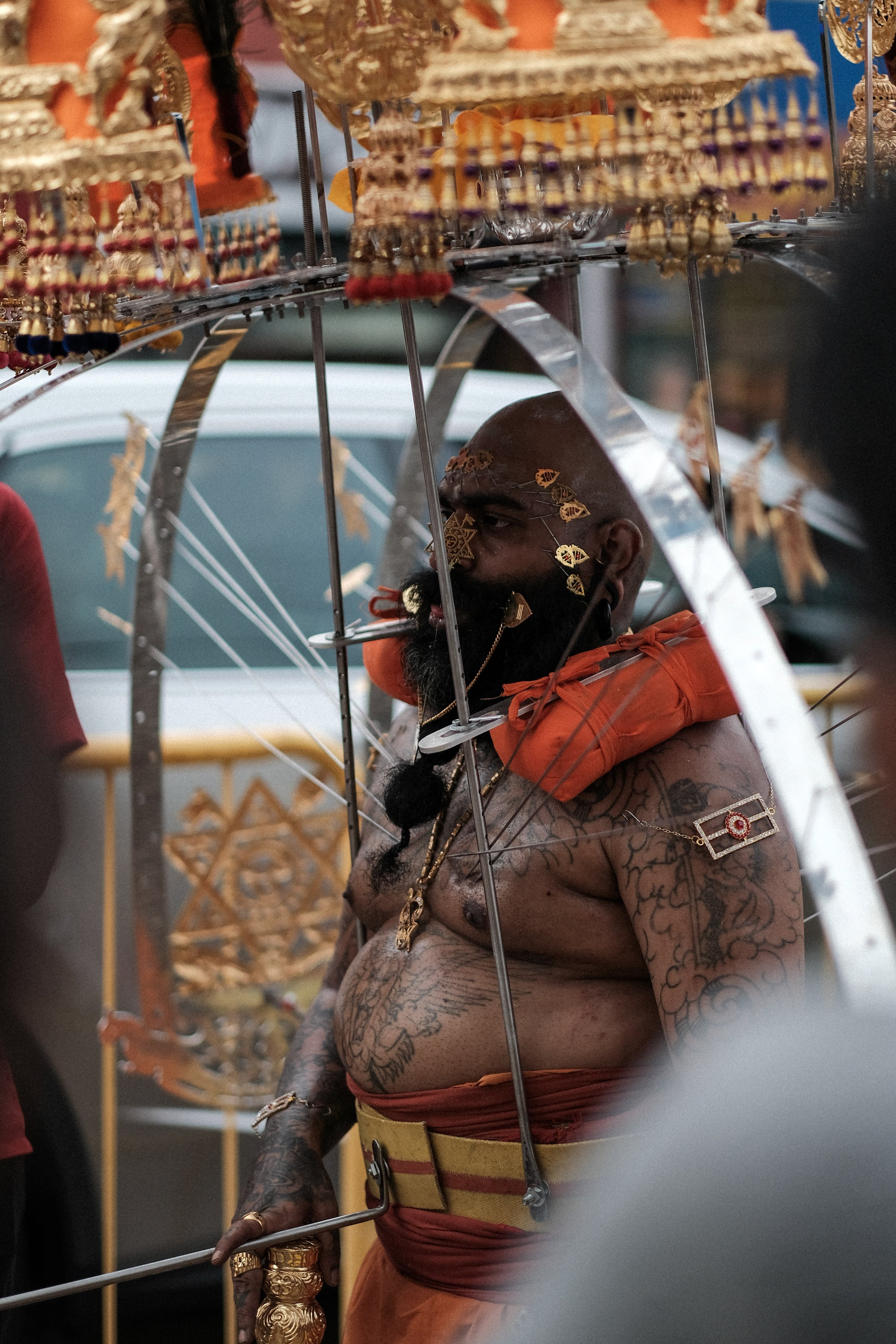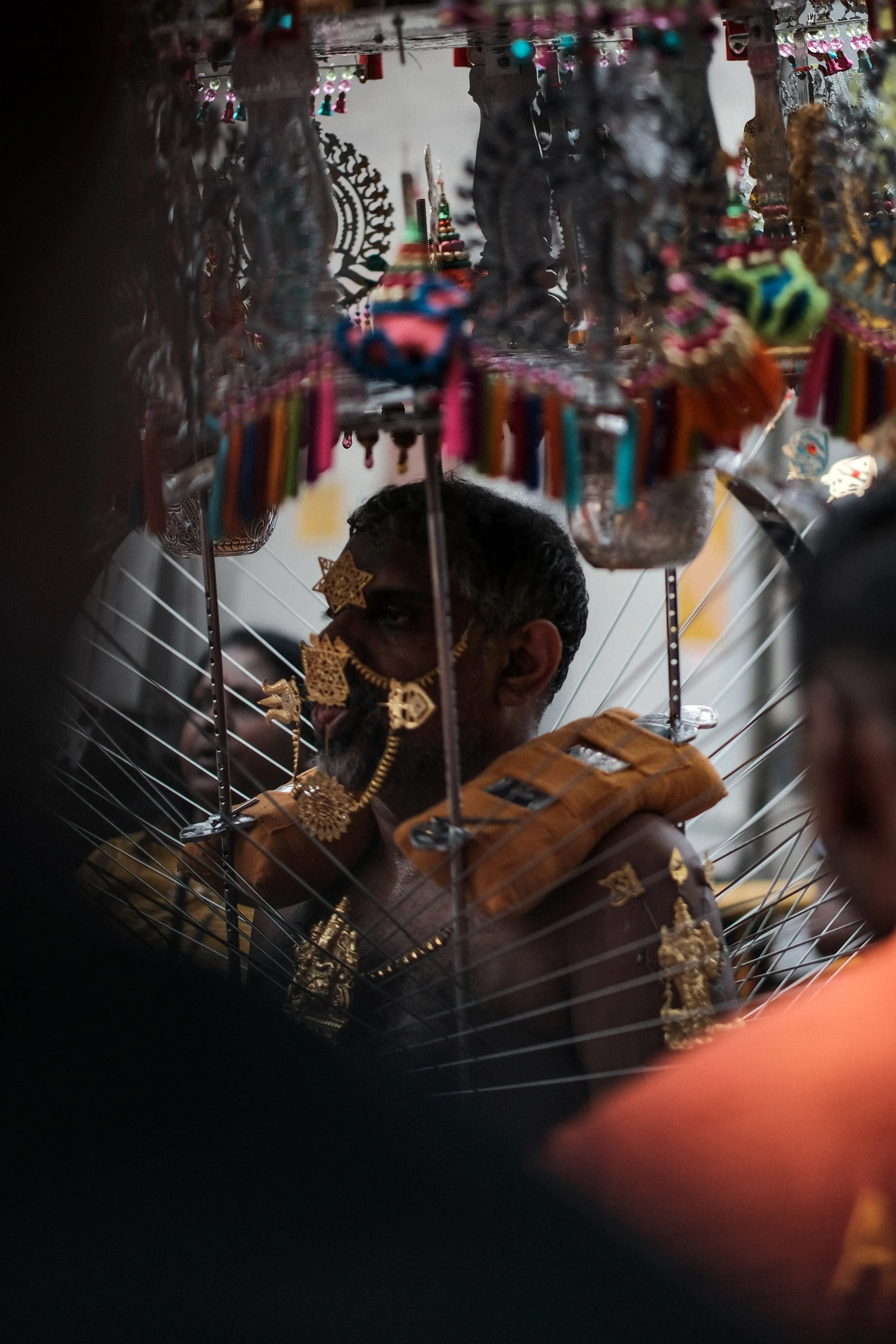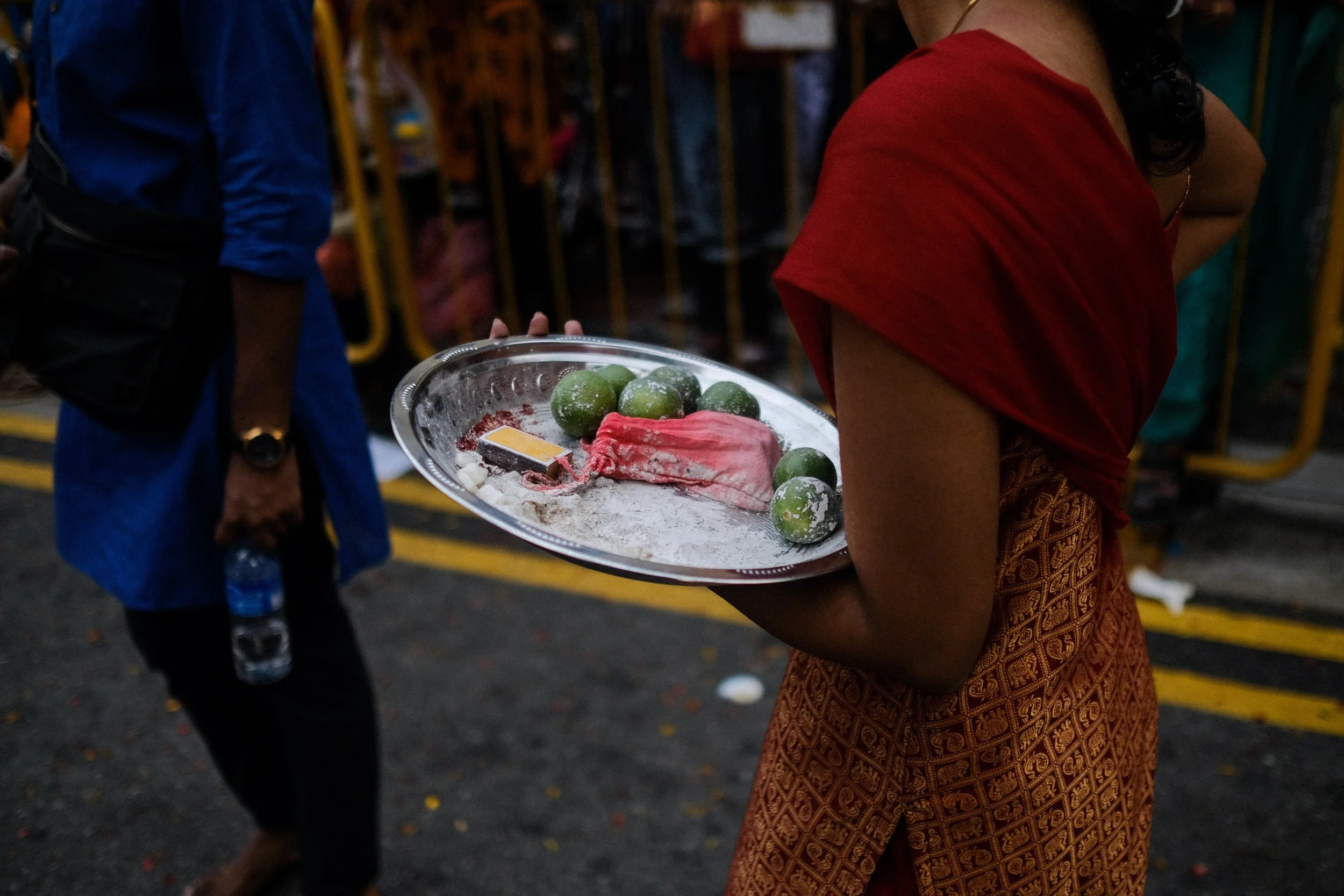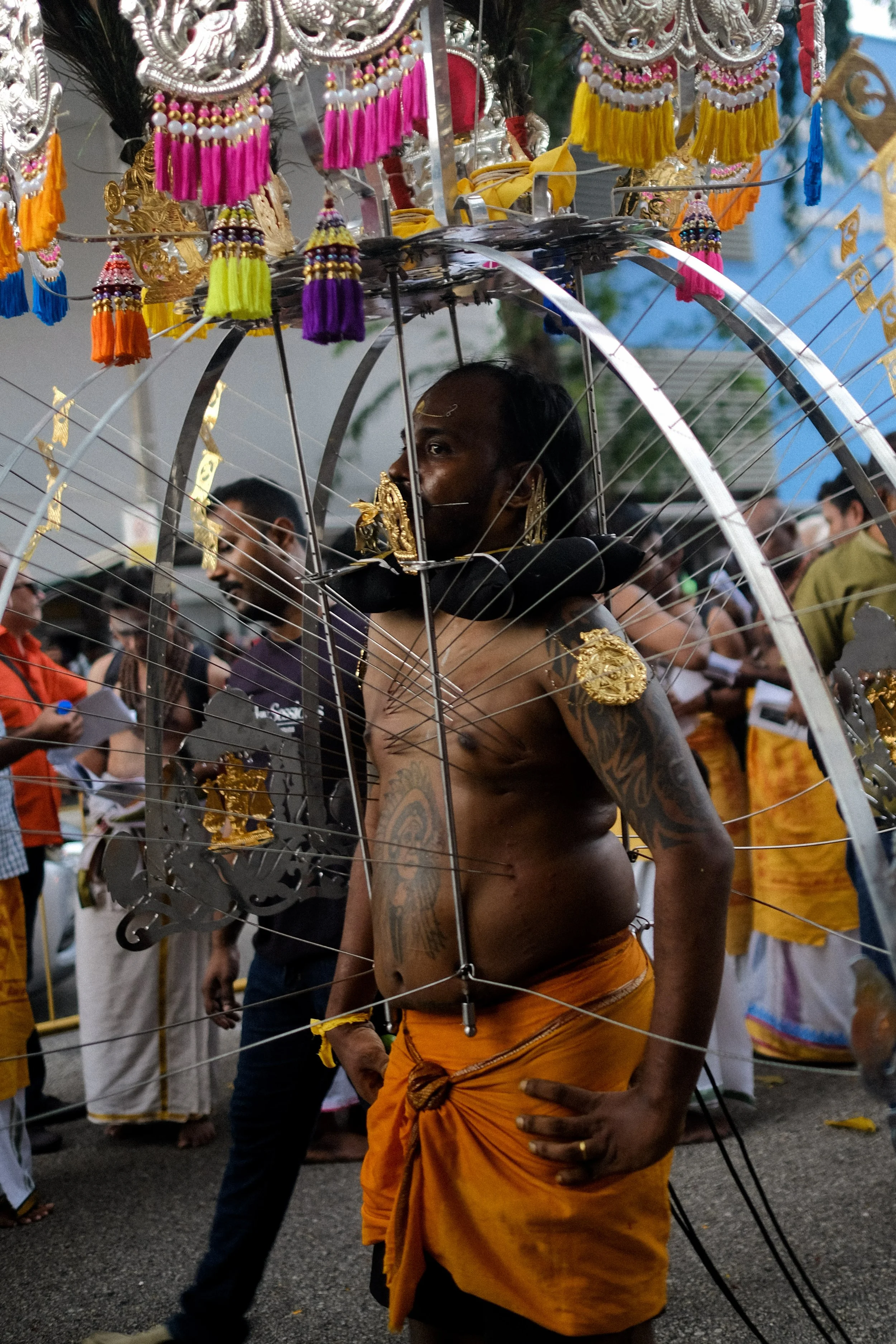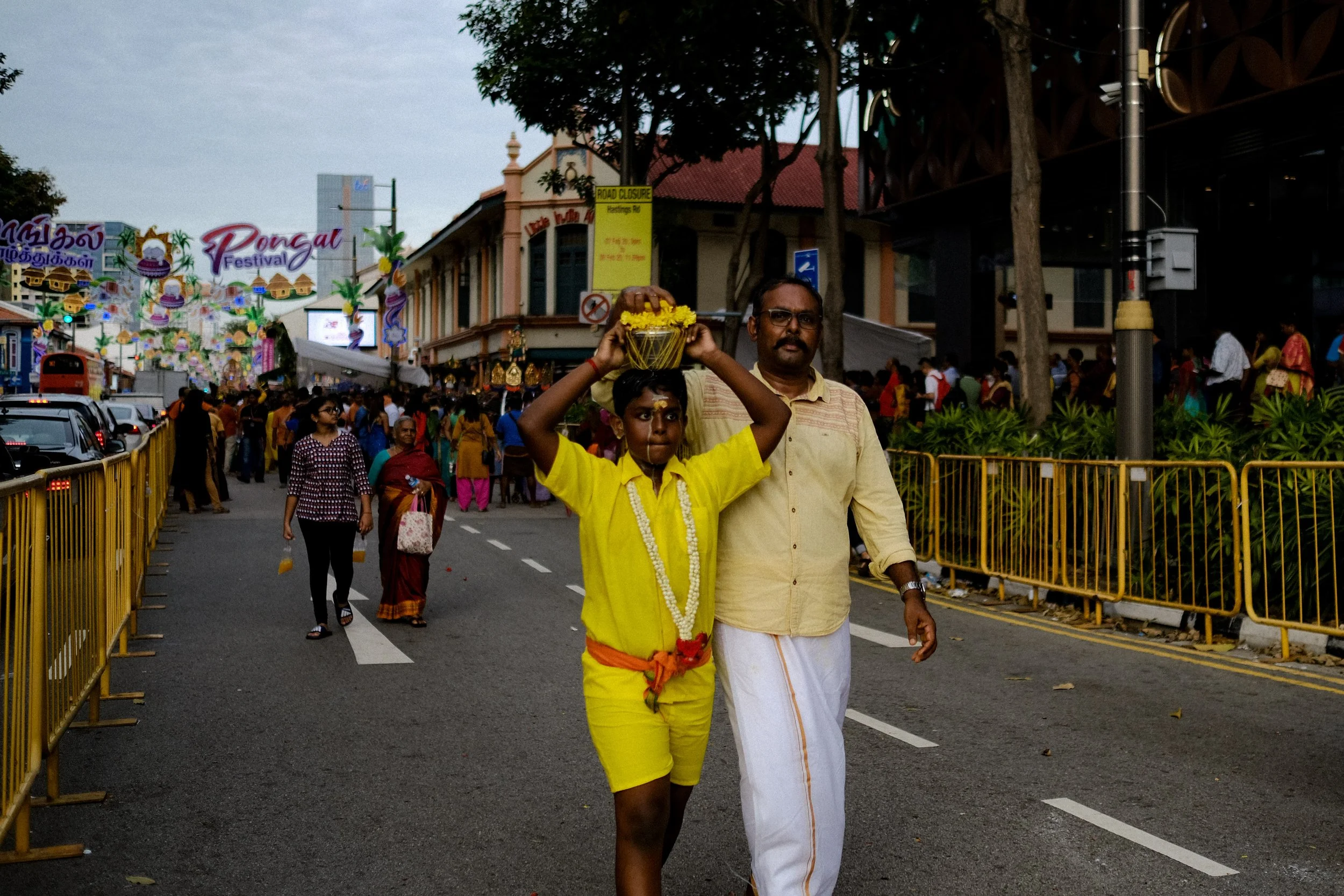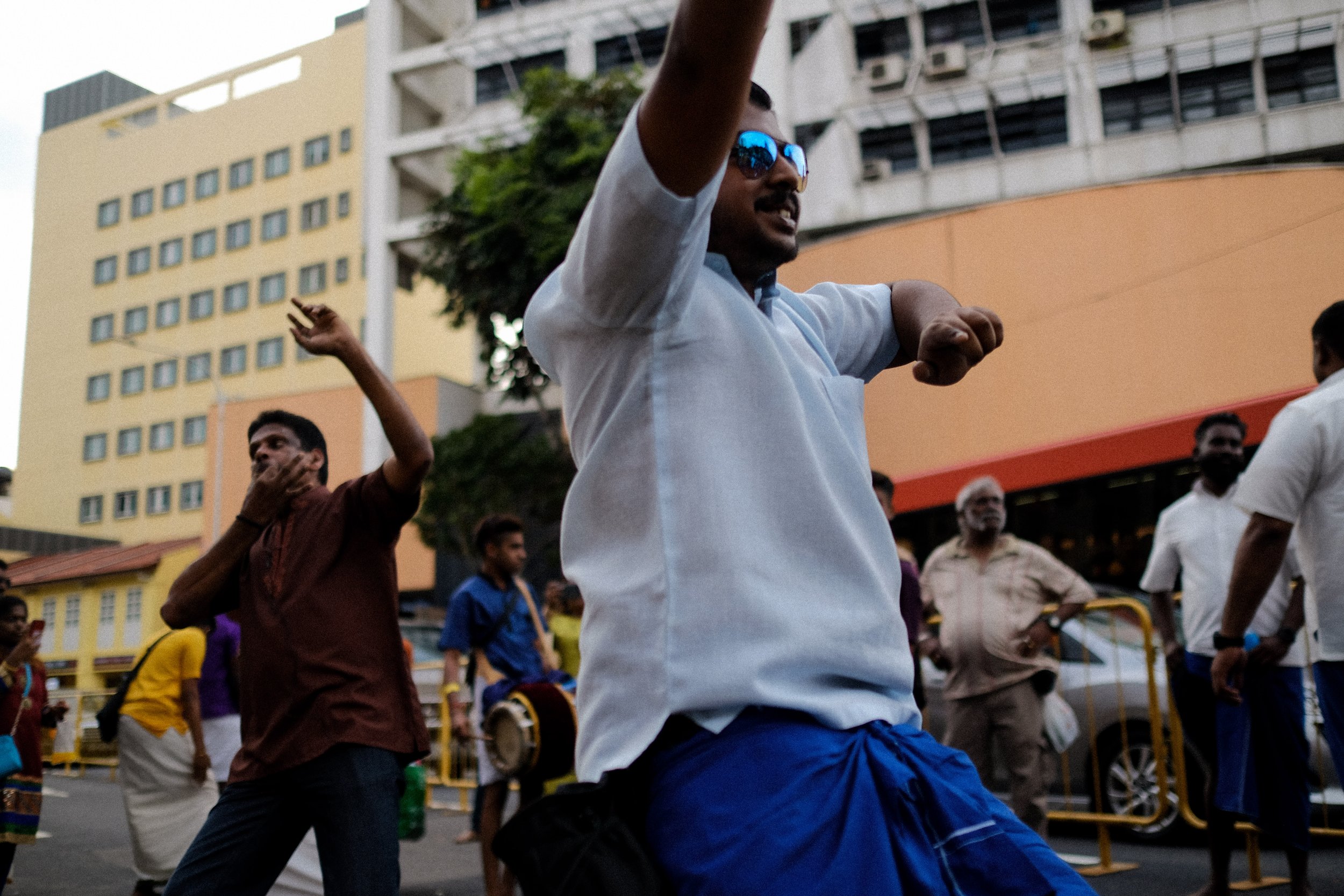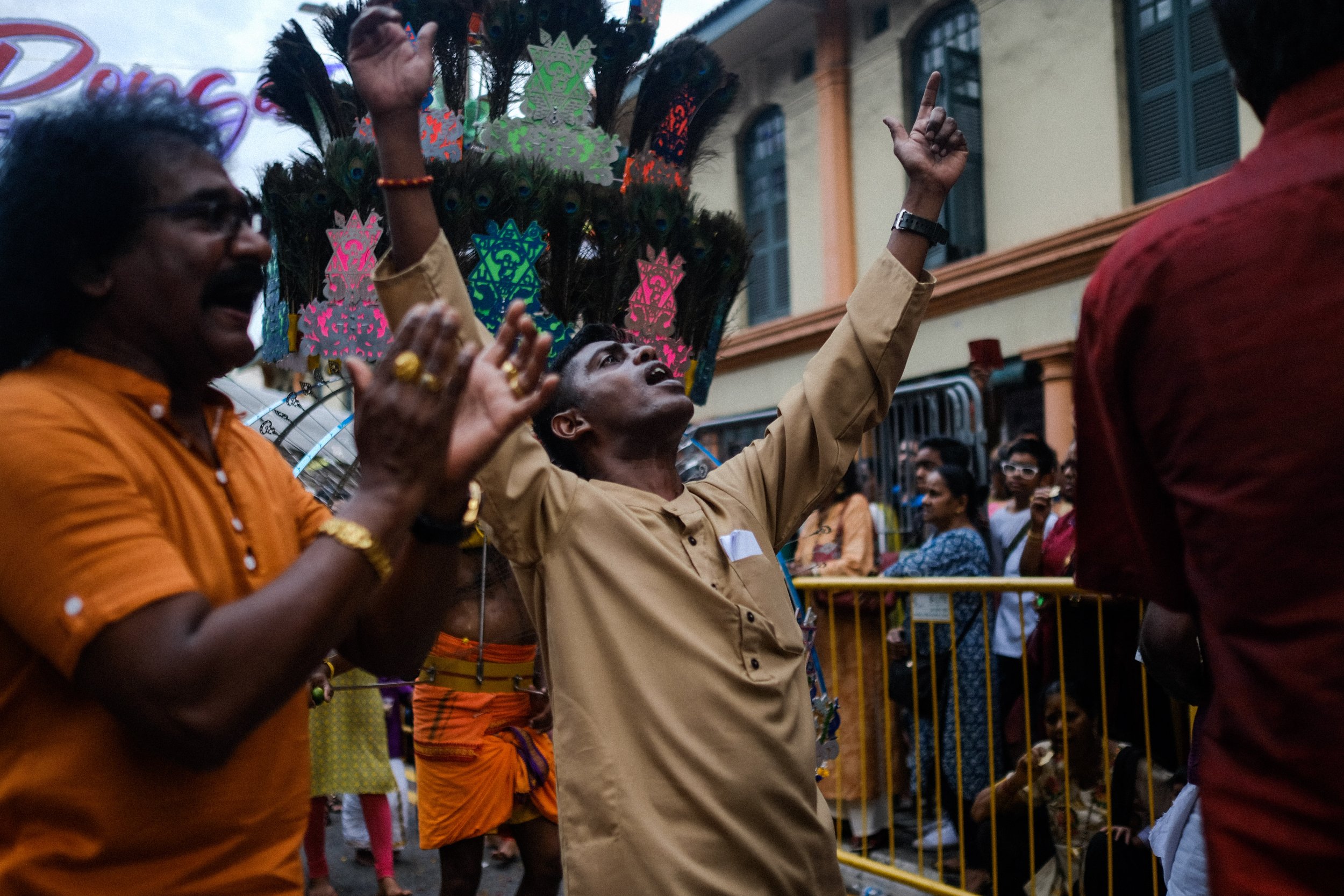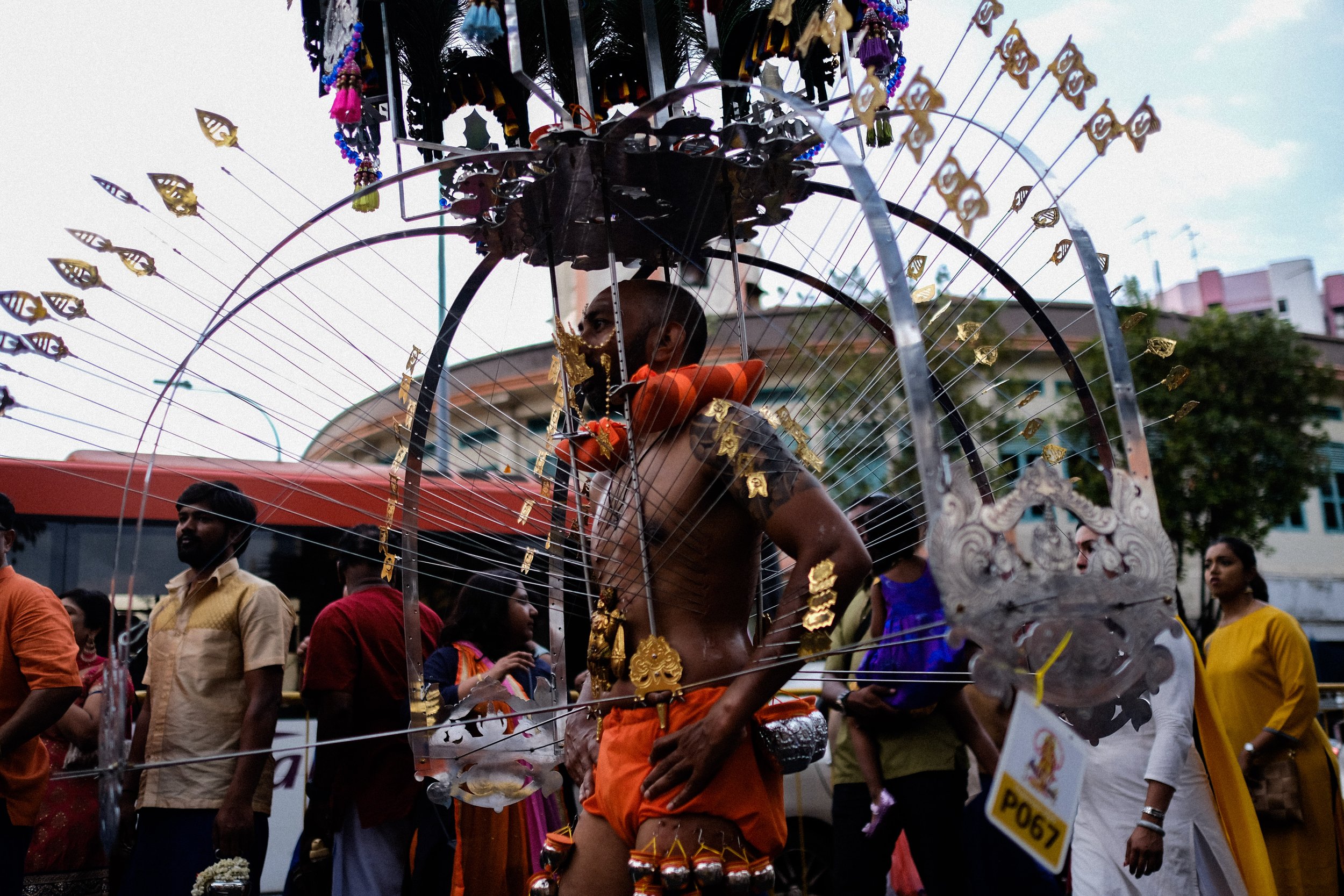Devotion and Tradition on Display
at Singapore’s Thaipusam Festival
Each year, Singapore’s streets come alive with the sounds of chanting, drums, and bells as thousands of Hindu devotees mark Thaipusam, a festival honoring Lord Murugan, the deity of war and victory. Celebrated primarily by the Tamil community, the festival typically falls in January or February and is known for its intense spiritual rituals, including the carrying of milk pots and ornate kavadis — elaborate structures that can involve body piercings as acts of penance or thanksgiving.
Thaipusam is more than a religious observance; it is a powerful public display of faith, endurance, and cultural identity. For many participants, the rituals are the culmination of weeks of preparation involving fasting, prayer, and mental discipline. The kavadi bearers, in particular, undergo physical and spiritual training before undertaking the challenging procession. The most striking kavadis feature metal spikes or hooks that pierce the skin, symbolizing the devotee's willingness to suffer in devotion.
While rooted in ancient traditions, Thaipusam in Singapore has also adapted to modern urban life. Authorities work closely with temple committees to ensure the event runs smoothly and safely, with controlled procession routes and support services. Despite restrictions on musical instruments in recent years, the spirit of the festival remains vibrant. Thaipusam continues to draw both worshippers and curious onlookers, highlighting the multicultural fabric of Singapore and the resilience of its religious traditions.


